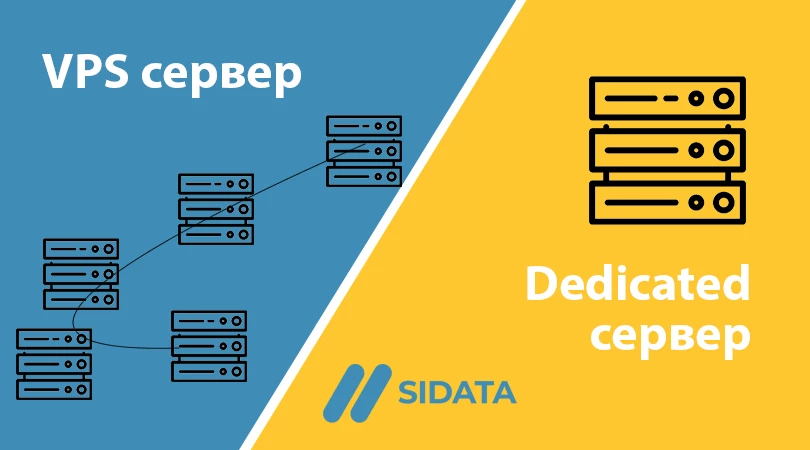Virtual VPS Server or Dedicated Server: Which Is Better?
When it comes to choosing hosting for your online project, an important aspect is deciding between renting a Virtual Private Server (VPS) or a Dedicated Server. To understand which one suits your needs better, let’s take a closer look at each option.
What Is a Dedicated Server?
Dedicated servers, also known as dedicated machines, are physical computers with hardware similar to regular PCs but significantly more powerful. A dedicated server includes a processor, a certain amount of RAM, a storage disk (SSD or HDD), and various connection ports.
Advantages of Dedicated Servers
- Full Control: The main advantage of a dedicated server is having full control over both the hardware and software. You can install any software, use specialized tools, and configure the server to meet your needs without limitations.
- High Security: Only you have access to the data on the server, which increases the level of security. Even the provider cannot access or modify your data without permission.
Disadvantages of Dedicated Servers
- High Cost: Maintaining dedicated servers is expensive, and providers charge significant fees for their rental.
- Scaling Difficulty: Increasing the power of a dedicated server requires physical replacement or addition of components, often necessitating server downtime for maintenance.
- Data Backup: Backing up data on a dedicated server requires additional software, such as Veeam, adding complexity and costs.

What Is a Virtual Private Server (VPS)?
Renting a VPS involves renting a “simulation” of a dedicated server using the same hardware and software resources. Virtualization allows for the creation of several virtual servers on a single dedicated “computer,” providing the same functionality as a real server.
Types of VPS/VDS Virtualization
- OS-Level Virtualization: This type of virtualization containerizes certain applications or areas of the operating system, allowing tenants to install software and work with it.
- Full Virtualization: Full virtualization runs on real hardware, utilizing actual RAM, processors, and storage disks.
- Para-Virtualization: In para-virtualization, multiple virtual OS instances are managed through specialized tools called hypervisors.
Advantages of Virtual Servers
- Cost-Effectiveness: Virtual servers allow providers to reduce hardware costs, making them more affordable for developers and webmasters.
- Flexibility and Scalability: Virtualization makes it easy to scale the system without needing to stop the server. You can add resources as needed.
- Security: Virtual servers, especially para-virtualized ones, provide a sufficient level of security for handling sensitive data.
Disadvantages of Virtual Servers
- Shared Resources: Virtual servers may share resources with other virtual machines on the same dedicated server, which can sometimes lead to performance degradation.
- Limited Access: Although virtual servers offer significant control, it may be more limited compared to dedicated servers.
The choice between a VPS and a dedicated server depends on your specific needs and priorities:
- Choose a dedicated server if you require full control over hardware and software, as well as a high level of security without sharing resources.
- Choose a virtual server if cost-effectiveness, flexibility, and scalability are important to you without significant downtime and expenses.
Both options have their unique advantages and disadvantages, so it’s important to carefully evaluate your project’s needs before making a decision.



Leave a Reply